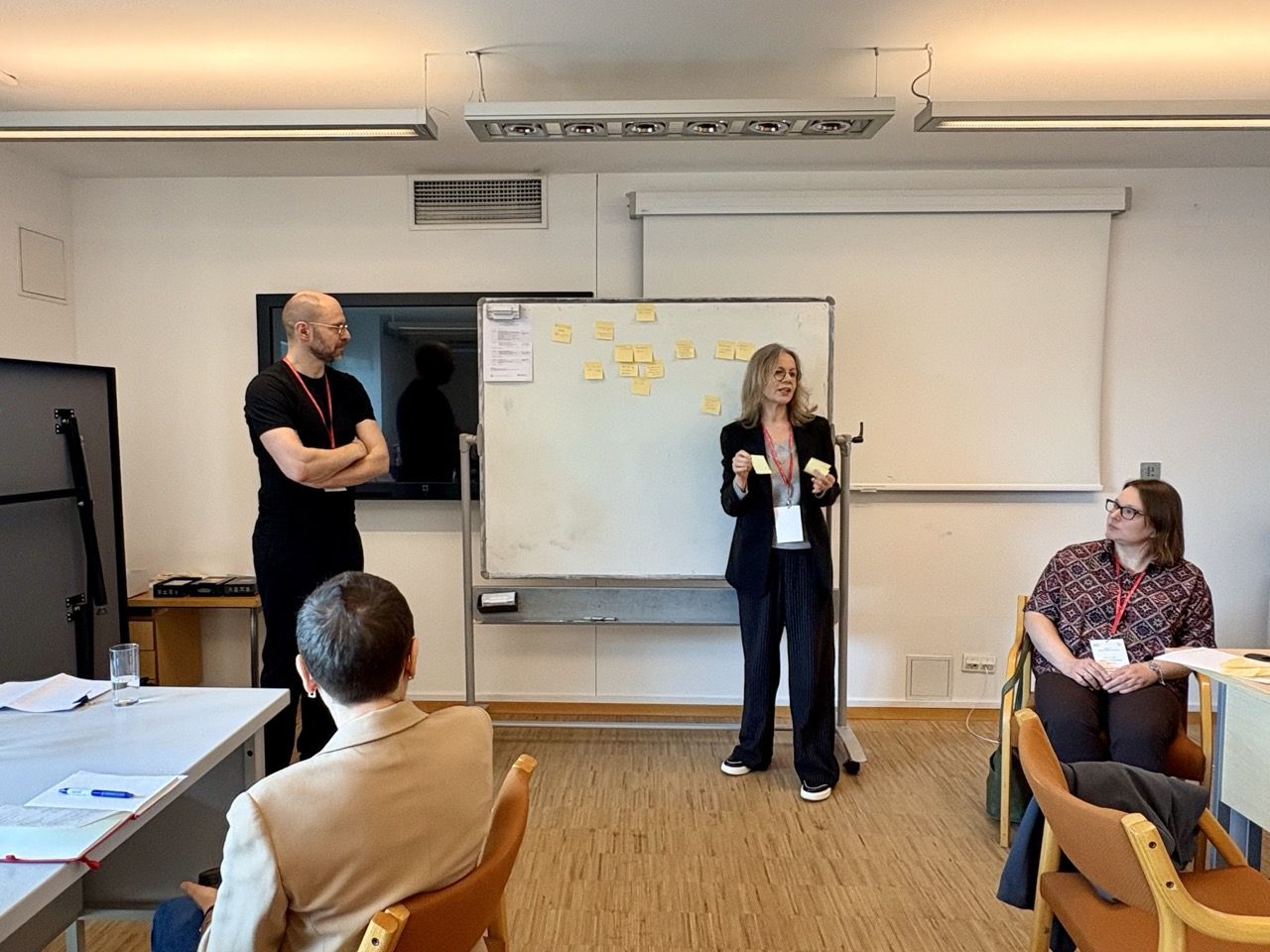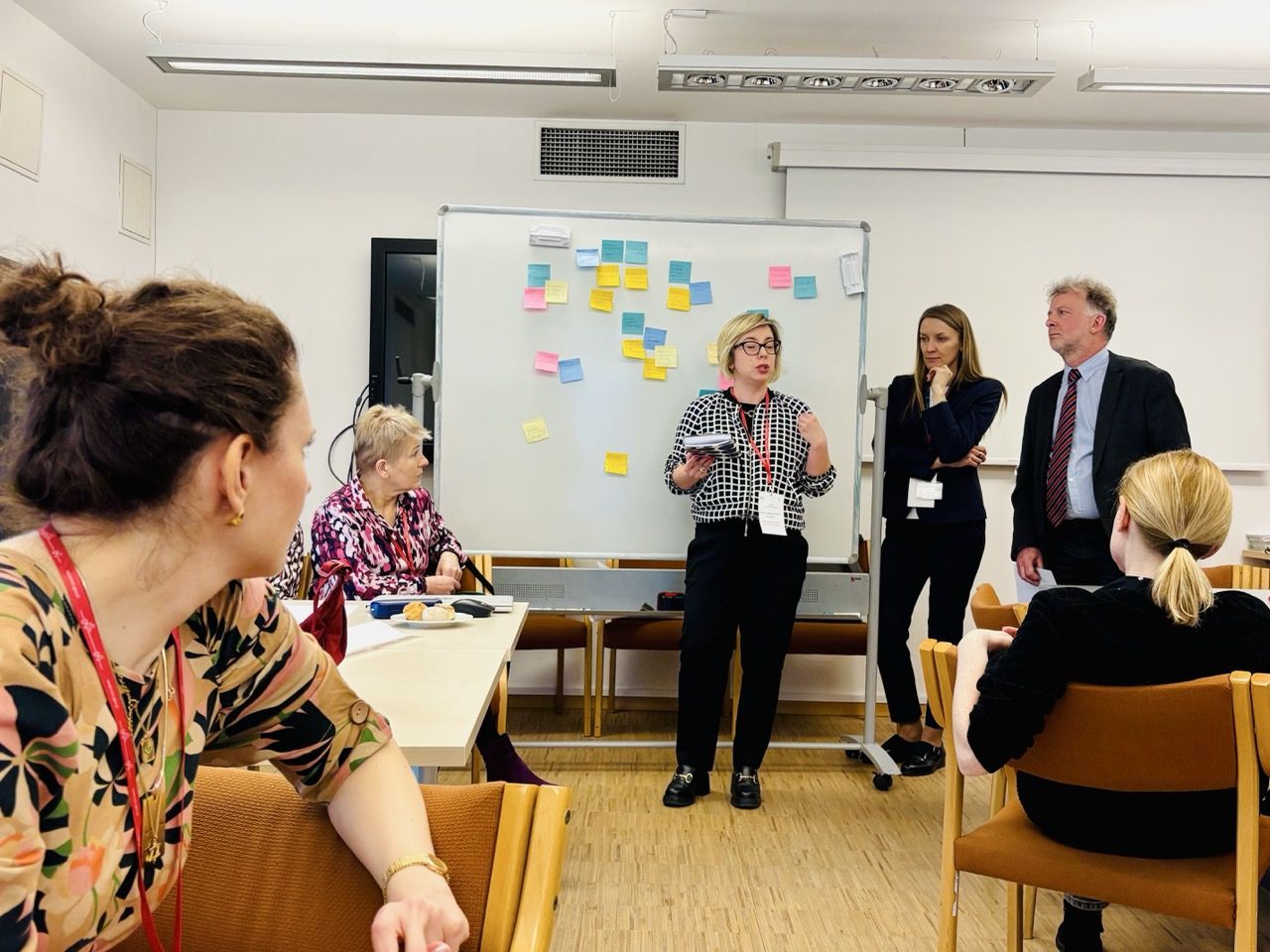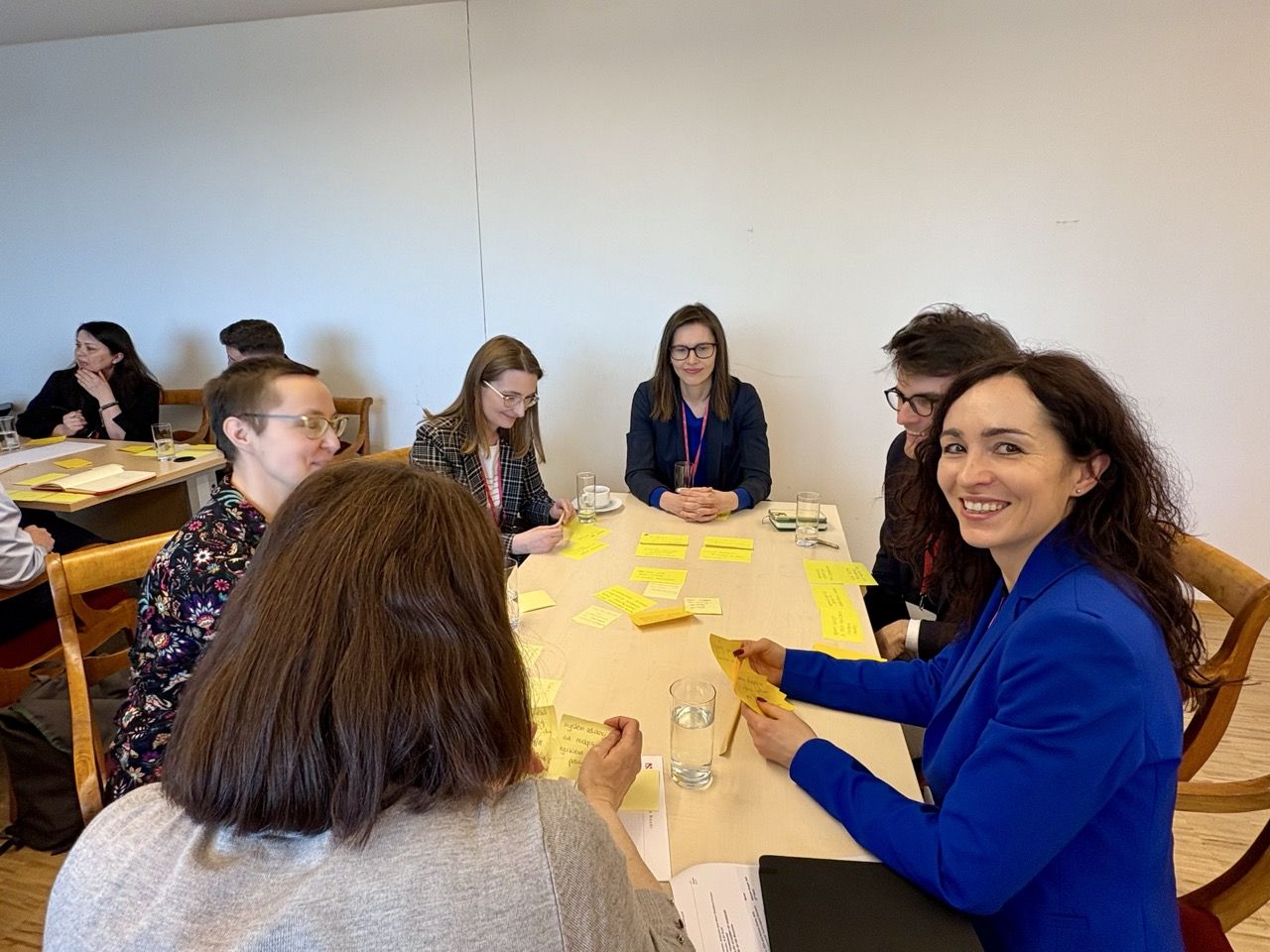Participants of the workshop in Warsaw, dedicated to the candidate for the European Partnership on Social Transformations and Resilience (STR) and future NCN calls for proposals funded under the Norway Grants and domestic resources, addressed the future research topics in social sciences and humanities, more effective connection between science and societal needs, social institutions and decision-makers. The outcome will help us include the Polish priorities in the Strategic Research and Innovation Agenda (SRIA) drafted by the STR Partnership, and design calls for research projects in the next edition of the Norway Grants.
The meeting “Connecting Research and Policy for a Greener, Inclusive and More Resilient Europe” was attended by researchers representing a diverse array of disciplines from various research centres and at various stages of their research career, as well as civil servants, and representatives of NGOs and business. Participants were divided into three groups: European Green Transition; Democracy, Rule of Law, Human Rights; and Social Inclusion and Resilience.
“Rarely do we have an opportunity with such a lineup to talk about vision, not actions. Research planning and cooperation are only considered when a project is developed. The meeting allowed us to see the big picture, recognise the available resources and see their value”, says Maksymilian Bielecki from the SWPS University, moderator of the Green Transition Group.
European Green Transformation
 The European Group Transition Group focused on individual, social and systemic changes. As regards individual changes, it was stressed that knowledge of climate changes should be increased and skills must be developed to support conscious and efficient actions. “We are dreaming of citizens who would be aware of climate changes and their implications, with sufficient resources and tools to combat them, capable of understanding that in taking climate-oriented actions, their personal interest coincides with the social interest”, says Maksymilian Bielecki.
The European Group Transition Group focused on individual, social and systemic changes. As regards individual changes, it was stressed that knowledge of climate changes should be increased and skills must be developed to support conscious and efficient actions. “We are dreaming of citizens who would be aware of climate changes and their implications, with sufficient resources and tools to combat them, capable of understanding that in taking climate-oriented actions, their personal interest coincides with the social interest”, says Maksymilian Bielecki.
“Participation was the term most frequently referred to in terms of social changes”, he adds, noting that it was closely connected with the scientific policy since science should not dominate when “addressing people and groups but should focus on listening to and cooperating with them”. He refers to societies that have a real impact on the policy and are equipped with the tools of a mature civic society.
In terms of public policies, the need to develop long-term solutions resilient to political changes was identified. “We should refrain from a “climate ADHD” where former strategies are abandoned every time a new government comes”, the moderator says.
Democracy, Rule of Law, Human Rights
 A group moderated by Katarzyna Walczyk-Matuszyk from the Institute of Fundamental Technological Research, PAS focused on education for democracy, public institutions, digital agenda as well as equality and non-discrimination. With regard to equality, the participants developed a vision of a society where equality is a virtue. The idea was supported with the motto “Make Equality Great Again” (MEGA) which was summarised by the moderator as a “change of social attitude to socially excluded groups and equality-related aspects”. In terms of civic education, the group opted for “a knowledge based society, competent, capable of critical thinking, action-oriented, valuing tolerance and mutual respect.” Involvement of citizens and teaching institutions was regarded as the key condition for any change in this regard. It was thought that public institutions, such as courts, police or ombudsman offices should be funded, protected from any political pressure and should develop self-awareness and communication with citizens. Discussions on the digital agenda included references to the unpredictability of technological progress, challenges related to the freedom of speech and regulations of the sector increasingly impacting social life.
A group moderated by Katarzyna Walczyk-Matuszyk from the Institute of Fundamental Technological Research, PAS focused on education for democracy, public institutions, digital agenda as well as equality and non-discrimination. With regard to equality, the participants developed a vision of a society where equality is a virtue. The idea was supported with the motto “Make Equality Great Again” (MEGA) which was summarised by the moderator as a “change of social attitude to socially excluded groups and equality-related aspects”. In terms of civic education, the group opted for “a knowledge based society, competent, capable of critical thinking, action-oriented, valuing tolerance and mutual respect.” Involvement of citizens and teaching institutions was regarded as the key condition for any change in this regard. It was thought that public institutions, such as courts, police or ombudsman offices should be funded, protected from any political pressure and should develop self-awareness and communication with citizens. Discussions on the digital agenda included references to the unpredictability of technological progress, challenges related to the freedom of speech and regulations of the sector increasingly impacting social life.
Social Inclusion and Resilience
A group moderated by Agnieszka Chrząszcz from the AGH University of Science and Technology addressed the issues of age and democracy, polarisation and social innovations, labour market, migration and multiculturalism, trying to create a positive vision of the future.
As regards demography, intergenerational society was opted for, with young and old people interacting on an equal footing. Popper’s open society was mentioned when talking about migration as well as a wise and friendly state where diversity is an asset, the state understands migration and develops effective, fair and evidence-based policies. Discussions on the labour market evolved towards the need to develop decent employment conditions based on gender equality and reduced polarisation. With reference to social innovation and division, a society that “draws on diversity, is not afraid of conflict and can harness its energy” was pictured.
 “It is very difficult to design future research with the world changing so much”, says the moderator. “Rapid changes in social policies, migration, cultural wars, digitalisation or Big Data are hard to predict. We are not working with medieval English literature but are dealing with a living organism which is changing so quickly. This is why it is so important to build social and institutional resilience to situations we cannot foresee now”. She stresses that “the workshop results should be flexible enough to capture certain problems and challenges, even if some will change in the future”.
“It is very difficult to design future research with the world changing so much”, says the moderator. “Rapid changes in social policies, migration, cultural wars, digitalisation or Big Data are hard to predict. We are not working with medieval English literature but are dealing with a living organism which is changing so quickly. This is why it is so important to build social and institutional resilience to situations we cannot foresee now”. She stresses that “the workshop results should be flexible enough to capture certain problems and challenges, even if some will change in the future”.
Prof. Paweł Kaczmarczyk from the Centre of Migration Research, University of Warsaw who participated in the work of the group emphasises the value of cooperation in a diverse team. “This is a great platform to create research projects and design public policies”, he says, adding that “appreciation of diversity in many aspects, from demography and education to migration, was often referred to”. He also points out the gap between the public debate and more complex perception of reality by researchers, practitioners and stakeholders.
Socially-Involved Science
Greater involvement of non-academic partners in research projects (as soon as they are scheduled) was recurring in the workshop summary. “It seems crucial to me to involve actors such as NGOs in research projects. When they are involved in research from the very beginning, they can use the knowledge immediately or even co-create it alongside the scientists. This way, the research outcome is put into practice so much faster”, says Prof. Witold Klaus from the Institute of Law Studies, PAS who emphasises that “cooperation, nowadays mainly in European projects, should also be promoted and supported as regards NCN funding of basic research”.
An increased collaboration with non-academic partners was also noted by Maksymilian Bielecki. “External stakeholders should be involved in basic research projects more freely; the knowledge of NGOs and business could also be used for basic research project purposes. The doors to our laboratories must be wide open”, he says, adding that “interdisciplinarity must not only be seen as collaboration across disciplines but also across sectors and levels, from an individual to community and finally to politics”.
The workshop organised by the National Science Centre and the Research Council of Norway under the EEA and Norway Grants 2014-2021, was held in Warsaw, on 1 April 2025, at the Institute of of Fundamental Technological Research, PAS.
A report summarising the work of each working group will soon be published on our website.
A new NCN podcast will soon be released. This time, we will talk about the STR Partnership and NCN’s Science and Society Initiative supported by the EEA and Norway Grants.
